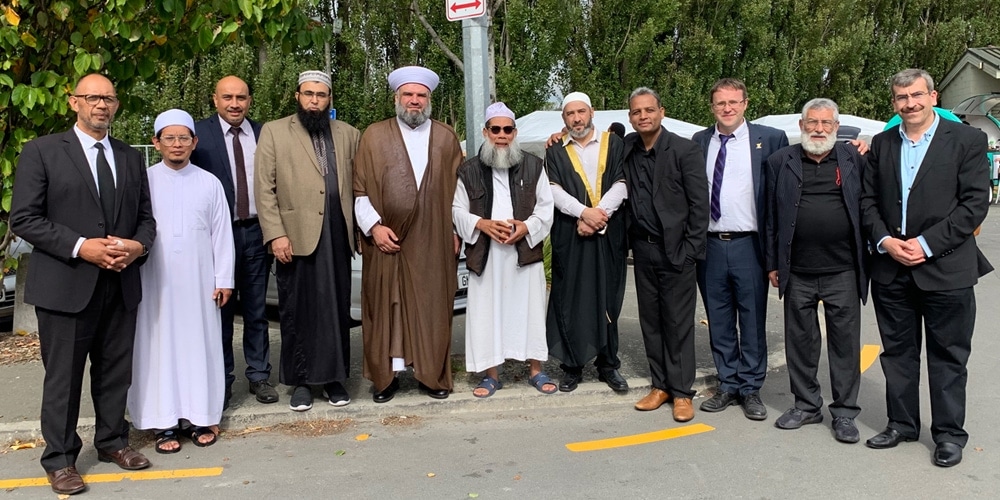
In the wake of the devastating Christchurch attacks on March 15, 2019, the Seventh-day Adventist Church in South New Zealand has produced resources to help members connect with and support Muslim friends and neighbors in culturally appropriate ways.
With both video and printable assets, the simple techniques aim to break down barriers at a time when the people of Christchurch are struggling, according to South New Zealand Conference president Mike Sikuri.
“People here are tired,” Sikuri said. “[The attack] has brought back recent trauma from the earthquakes. We are shocked something like this can happen here. It raises questions about how we deal with people of other races and communities.”
Making connections is where Sikuri sees the resources as being important to coach church members. Yet, he said, he also recognizes that it is not only the Muslim community that is hurting.
Christchurch Adventist School is quite close to the scene of one of the mosque attacks and was placed in lockdown during the incident. While counselors and pastors have been providing support, Sikuri said, there has been a rise in the number of children responding violently to disagreements and having anxiety and panic attacks, particularly those who watched a video of the attack. Leaders in the conference church region are looking at how to best provide mental health first aid to the children and staff.
In the aftermath of the event, there was an outpouring of community support, Sikuri said, and the conference and ADRA are committed to long-term support as more needs become evident in the future.
“We’ve touched base daily, offered accommodation at the Pascoe Park campground, including breakfasts from the Adventist food factory at the family center, but we are committed to helping with needs that may come up down the track.”
Christchurch pastors have met regularly and were encouraged when they were joined by Eddie Tupai, leader of the New Zealand Pacific Union, and Denison Grellmann, CEO of ADRA New Zealand. “Their support was important as it showed we are not alone, but part of one big family,” Sikuri said.
On the first Saturday (Sabbath) immediately after the attacks, most Adventist churches in South New Zealand made time in their services for reflection, and ministers changed their sermons. “People had questions, fear, wondering what’s going on,” Sikuri said. “Some churches provided spaces where people could talk and process, or a special time for prayer.”
Sikuri paid tribute to his pastors, especially Christchurch regional coordinators Stephen Wilson and Younis Masih. Both have had experience working with Muslim communities in the past. Masih is originally from Pakistan, and Wilson worked in Albania.
“We had a vigil of Christian churches,” Sikuri said. “Imams and Muslims turned up because of the Adventist connection. Stephen and Younis had been there [at the family center] almost every day. They have developed our resources to coach people to be culturally sensitive, and we’ve shared those with other Christian churches.
“These two men, I’ve been proud of them. Muslim leaders have just been overwhelmed, with so much to process. Through those men they made the connections,” Sikuri said.
But the work in Christchurch is not finished yet, he added. In the churches of that conference, leaders are now focused on asking what the needs are and supporting people in the Adventist Church at large.
“Over the next number of months, we may look at bringing somebody in, some Adventist specialists, to help people process things.”
Adventist churches are also gearing up for evangelism meetings in October. In some ways, Sikuri said, the tragedy has reminded local residents of the essential things in life, and they are prioritizing relationships and connections as never before.
The original version of this story was posted on the Adventist Recordnews site.